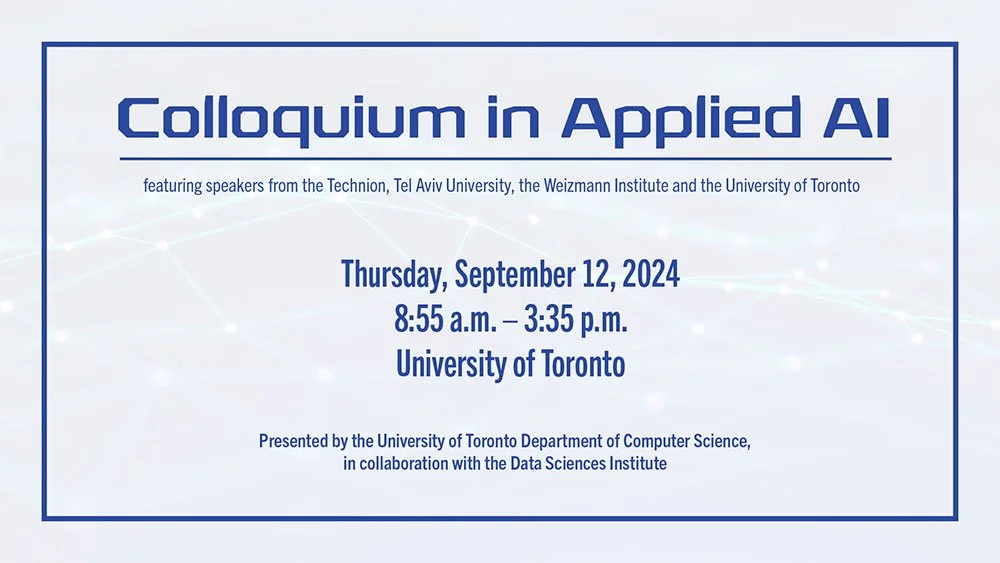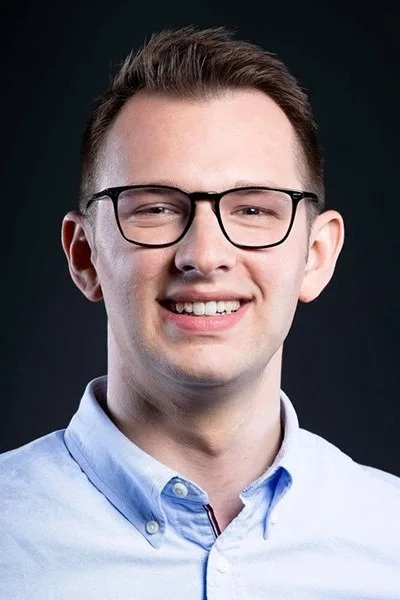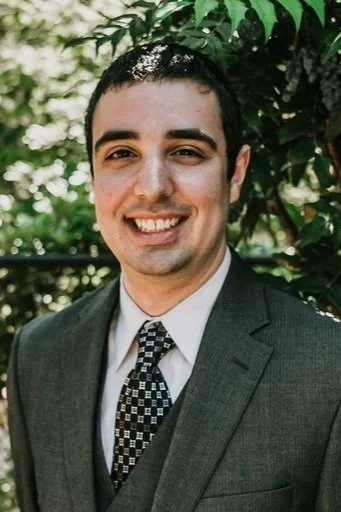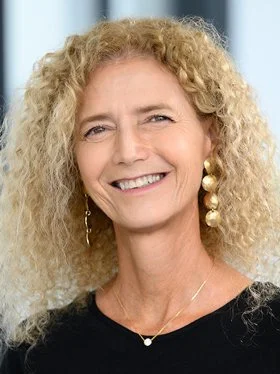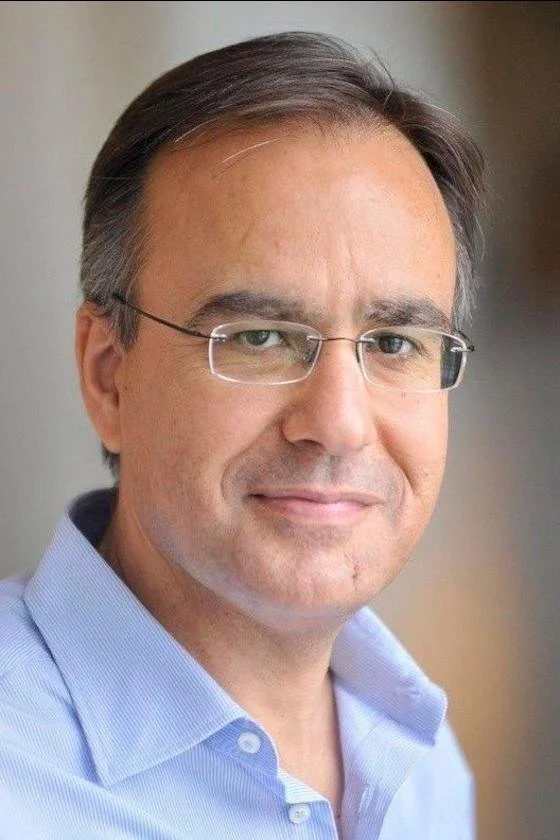The University of Toronto Department of Computer Science, in collaboration with the Data Sciences Institute, presents the Colloquium in Applied AI, bringing together world-leading experts in artificial intelligence from the Technion, Tel Aviv University, the Weizmann Institute and the University of Toronto for a day of academic talks on applications of AI in fields ranging from healthcare to wildlife conservation.
Date: Thursday, September 12, 2024
Time: ~9 a.m. to 5 p.m.
Location: In person, St. George Campus, University of Toronto
Venue information will be provided to confirmed registrants prior to the event.
If you have any questions about this event, please email events@cs.toronto.edu.
Note: registration for this event is now closed.
Schedule
8:30–8:55 a.m.
Coffee & Breakfast
8:55–9:00 a.m.
Welcome Note
9:00–9:40 a.m.
Michal Irani, “Reading Minds & Machines”
9:40–10:10 a.m.
David Lindell, “Imaging Anytime Anywhere: Capturing Dynamic Scenes from Seconds to Picoseconds”
10:10–10:35 a.m.
Break
10:35–11:15 a.m.
Sivan Toledo, “Specialized Least-Squares Solvers in Wildlife Tracking”
11:15–11:45 a.m.
Alex Mariakakis, “Embracing Ubiquitous Technology to Complement, Scale, and Extend Traditional Healthcare”
11:45 a.m.–12:45 p.m.
Lunch
12:45–1:25 p.m.
Tova Milo, “Data, more data, too much data”
1:25–1:55 p.m.
Nick Koudas, “Reliable Text to SQL”
1:55–2:20 p.m.
Break
2:20–3:00 p.m.
Eran Yahav, “Toward AI-Driven Software Development: Challenges and Lessons from the Field”
3:00–3:30 p.m.
Nandita Vijaykumar, “System level techniques to accelerate robotics and ML tasks in resource constrained devices”
3:30–3:35 p.m.
Ending Remarks
Speakers
Listed in order of appearance.
Michal Irani
Professor, Weizmann Institute
Title: Reading Minds & Machines
-
Abstract:
Can we reconstruct images that a person saw, directly from his/her fMRI brain recordings?
Can we reconstruct the training data that a deep-network trained on, directly from the parameters of the network?
The answer to both of these intriguing questions is “Yes!”
In this talk I will present some of our work in both of these domains. I will then show how combining the power of Brains & Machines can lead to significant breakthroughs in both domains, and potentially bridge the gap between Minds and Machines. Finally, I will show how combining the power of Multiple Brains (with NO shared data) may lead to new breakthrough discoveries in Brain-Science, and allow mapping of information between different brains.
Bio: Michal Irani is a Professor at the Weizmann Institute of Science, and is currently the Dean of the Faculty of Mathematics and Computer-Science. Michal's research interests centre around Computer Vision, Artificial Intelligence, and decoding information from Brain activity. Michal received her PhD from the Hebrew University of Jerusalem (1994). During 1993-1996 she was a member of the Sarnoff Research Center (Princeton). She joined the Weizmann Institute in 1997.
Michal’s honours include the Sarnoff Technical Achievement Award (1994), the Alon Fellowship for Outstanding Young Scientists (1998), the Levinson Prize in Mathematics (2003), the Maria Petrou Prize (awarded by the IAPR) for outstanding contributions to the fields of Computer Vision and Pattern Recognition (2016), the Helmholtz “Test of Time Award” for her paper “Actions as space-time shapes” (2017), the Landau Prize in Artificial Intelligence (2019), and the Rothschild Prize in Mathematics and Computer Science (2020). She also received several Best-Paper Awards in leading conferences (ECCV’2000, ICCV’2001, ECCV’2002, ICCV’2005). In 2023 Michal was elected member of the Israel Academy of Sciences and Humanities.
David Lindell
Assistant Professor, Department of Computer Science, University of Toronto
Title: Imaging Anytime Anywhere: Capturing Dynamic Scenes from Seconds to Picoseconds
-
Abstract: The observed timescales of the universe span from the exasecond scale (1e18 seconds) down to the zeptosecond scale (1e-21). Between these extrema, specialized imaging systems can capture events only within a relatively small range of timescales. Thus, simultaneous sensing of both slow and ultrafast events, across many orders of magnitude in time, remains a challenge. Moreover, ultrafast imaging systems are typically confined to single-viewpoint capture, hindering 3D visualization of phenomena at sub-nanosecond timescales. In this talk, I discuss new computational algorithms that turn a single-photon detector into a ultra-wideband imaging system that captures phenomena "anytime", or at timescales ranging from seconds to picoseconds. I also show imaging "anywhere" at picosecond timescales—a technique that combines multi-viewpoint measurements from single-photon detectors with neural rendering to synthesize novel views of propagating light. Application of this technique enables time-resolved, 3D visualization of complex light transport effects including scattering, specular reflection, refraction, and diffraction.
Bio: David Lindell is an Assistant Professor in the Department of Computer Science at the University of Toronto. His research combines optics, emerging sensor platforms, machine learning, and physics-based algorithms to enable new capabilities in visual computing. Prof. Lindell’s research has a wide array of applications including autonomous navigation, virtual and augmented reality, and remote sensing. Prior to joining the University of Toronto, he received his PhD from Stanford University. He is a recipient of the 2021 ACM SIGGRAPH Outstanding Dissertation Honorable Mention Award, the 2023 Marr Prize, and a 2024 Google Research Scholar Award.
Sivan Toledo
Professor, Tel Aviv University
Title: Specialized Least-Squares Solvers in Wildlife Tracking
-
Abstract: Over the past 12 years I have been involved in the design, implementation, and maintenance of a wildlife tracking system called ATLAS. The system allows ecologists to accurately track small birds, bats, mammals, and reptiles that carry miniature radio transmitters. The system's ability to simultaneously track many small animals led to interesting discoveries and to the publication of high impact articles in Science, PNAS, etc. The talk will describe the system and the research challenges that it posed, with a particular focus on algorithmic challenges. In particular, I will describe the robust least-squares location estimation algorithm that we developed for this system, Kalman filtering and smoothing algorithms that we implemented and developed for it (and for other applications), continuous and discrete clock-synchronization algorithms, and a mixed-integer least-squares GPS solver that we developed for a competing tracking system.
Bio: Sivan Toledo a leading researcher with expertise in Combinatorial Scientific Computing and Numerical Linear Algebra, and Computer Systems. His work in the former includes pioneering contributions to sparse matrix computations, combinatorial preconditioners, and communication-efficient algorithms. In the realm of computer systems, Sivan Toledo has focused on wildlife localization and tracking, spearheading the technical development of the ATLAS reverse-GPS wildlife tracking system since 2012. His efforts have facilitated groundbreaking ecological research, including a notable study published in Science. Prior to his current endeavours, he developed innovative solutions for wireless sensors and advanced algorithms for flash memories. here
Alex Mariakakis
Assistant Professor, Department of Computer Science, University of Toronto
Title: Embracing Ubiquitous Technology to Complement, Scale, and Extend Traditional Healthcare
-
Abstract: Traditional healthcare is centred around face-to-face interactions between patients and clinicians. While these human relationships are important for establishing empathetic and ethical care, they limit the extent to which healthcare can be accessed and delivered. Ubiquitous technologies like smartphones and wearables can augment traditional healthcare workflows by increasing the access that people have to health-monitoring tools. Rather than viewing healthcare as a reactive endeavour, we can work towards proactive approaches like preventative screening, continuous disease management, and informative visualizations that empower all stakeholders to make informed and timely decisions. To achieve this vision, my research group applies signal processing and machine learning on sensor data to measure vital signs and infer symptoms. Since these technologies may sometimes be intended for people without medical training, my group also explores how such tools should be designed to achieve clinically relevant goals. In this talk, I will highlight three projects: (1) acoustic cardiac sensing with earbuds, (2) passive speech analysis for respiratory monitoring, and (3) accurate and informative menstrual health tracking.
Bio: Alex Mariakakis is an Assistant Professor in the Department of Computer Science at the University of Toronto and an Affiliate Scientist at Techna. He runs the Computational Health and Interaction (CHAI) lab, which leverages ubiquitous and emergent technologies to address problems related to people’s health and wellbeing. His research not only creates new sensing technologies for measuring physiological, behavioural, and contextual health indicators, but also examines the implications of these technologies in people’s hands. Alex and his research group deliver innovative solutions using expertise in multiple subareas of computer science, particularly machine learning, signal processing, computer vision, and human-computer interaction.
Alex received his PhD from the School of Computer Science and Engineering at the University of Washington. As a student, he received the National Science Foundation Graduate Research Fellowship, the Qualcomm Innovation Fellowship, and the Gaetano Borriello Outstanding Student Award at UbiComp 2018. His work has garnered multiple Best Paper Awards at ACM venues (CHI, COMPASS) and significant attention from media outlets ranging from the BBC to National Geographic.
Tova Milo
Professor, Tel Aviv University
Title: Data, more data, too much data
-
Abstract: Over the past 30 years, the world of data management has undergone a dramatic evolution, allowing us to consider an increasingly wide range of data types, sources, and processing models. This has also led to the collection of tremendous volumes of data, and we are now at a point where almost every aspect of our lives is data-driven. In this talk, I will share my perspective on some of the “hot topics” that I have been personally involved with in this evolution, and discuss why certain research topics become popular and when they lose their relevance. I will furthermore argue that we are now facing a turning point where the deluge of data has become a serious risk, and that the next “hot” research agenda should focus on data disposal. Despite advances in storage technology, the amount of data generated is projected to surpass storage production by an order of magnitude by 2025, and uncontrolled data retention further poses significant risks to security and privacy. I will discuss the logical, algorithmic, and methodological foundations necessary for the systematic disposal of large-scale data, highlighting new research challenges and the potential for reusing existing techniques. I will also share insights from the research conducted by the Tel Aviv Databases group in this direction.
Bio: Tova Milo is a full Professor of Computer Science at Tel Aviv University and the Dean of the Faculty of Exact Sciences. She served as the head of the Computer Science Department from 2011 to 2014. Milo is the head of the data management group in Tel Aviv University, and her research focuses on Web data management. She received her PhD from the Hebrew University and was a postdoctoral fellow at the University of Toronto and INRIA, France, prior to joining Tel Aviv University. Milo has co-authored over 200 papers in top database conferences and journals, as well as a book on business processes. In 2010, Milo and her co-authors Victor Vianu and Dan Suciu won the Alberto O. Mendelzon Test-of-Time Award for their paper on type checking for XML transformation languages. In 2012 Milo was elected as an ACM Fellow for her "contributions to database theory and business process management". In 2014, she was elected a member of the Academia Europaea. In 2017, she won the Weizmann Prize for Exact Sciences as well as the VLDB Women in Database Research award. In 2022, she was awarded the IEEE TCDE Impact award. In 2023, she received Doctorate Honoris Causa by the University of Zurich.
Nick Koudas
Professor, Department of Computer Science, University of Toronto
Title: Reliable Text to SQL
-
Abstract: Large language models (LLMs) have revolutionized natural language interfaces for databases, particularly in text-to-SQL conversion. However, current approaches often generate unreliable outputs when faced with ambiguity or insufficient context. We present Reliable Text-to-SQL (RTS), a novel framework that enhances query generation reliability by incorporating abstention and human-in-the-loop mechanisms. We will demonstrate that this framework achieves accuracy on standard benchmarks that widely surpasses current SOTA techniques. We will also discuss generalizations of RTS to problems with structure related to text to SQL conversion.
Bio: Nick Koudas is a faculty member at the Department of Computer Science at the University of Toronto. He conducts research in the areas of data systems, analysis of big data, data science and applied machine learning. His main interest is to develop algorithms and build systems capable of analyzing and processing massive and diverse data sets. Of particular interest in his group is the incorporation of machine learning techniques as primitives in scalable data systems capable of processing and analyzing vast data collections. He received a Bachelor's Degree from the University of Patras in Greece, a MSc from the University of Maryland at College Park and a PhD degree from the University of Toronto. His work has received various best paper awards at international forums. He was named the 2011 inventor of the year by the University of Toronto (1st prize). His interests in data analytics expand beyond academic activities. In the past, he co-founded Sysomos (part of Marketwire/NASDAQ) and Aislelabs (part of Trapeze Group/Constellation Software). He is also a co-founder at Workorb.
Eran Yahav
Professor, Technion
Title: Toward AI-Driven Software Development: Challenges and Lessons from the Field
-
Abstract: AI-driven software development is poised to transform the entire software development life cycle (SDLC).In this talk, we'll discuss some of the challenges and solutions for AI-driven software development, including:
• How does the SDLC change when autonomous agents can handle some tasks?
• What is the right human-machine interaction?
• How do we make the AI contextually aware
Bio: Eran Yahav is the CTO of Tabnine and a Professor of Computer Science at the Technion, Israel. His research interests include program synthesis, machine learning for code, program analysis, and program verification.
Nandita Vijaykumar
Assistant Professor, Department of Computer Science, University of Toronto
Title: System level techniques to accelerate robotics and ML tasks in resource constrained devices
-
Abstract: Recent years have seen significant advances in algorithms, approaches, and sensor modalities for important tasks in robotics and computer vision, including 3D reconstruction, neural rendering, online mapping, and perception. This has led to large computational demands from the underlying compute hardware and memory systems. In this talk, I will discuss the performance and energy inefficiencies of some of these applications and their implications on resource-constrained devices such as mobile phones, drones, mobile robots, health devices, etc. I will then discuss some of our recent research on on algorithm-system co-design to enable faster and more efficient implementations while ensuring that the accuracy of the task is preserved
Bio: Nandita Vijaykumar is an Assistant Professor at the Department of Computer Science at the University of Toronto. She leads the embARC research group at the University of Toronto. She is also affiliated with the Vector Institute for Artificial Intelligence. She received her PhD from Carnegie Mellon University. She has previously worked for AMD, Intel, Microsoft, and Nvidia. Her research interests lie at the intersection of computer architecture/compilers/systems, and computer vision/robotics/ML. She is the recipient of the Connaught New Researcher Award, the Benjamin Garver Lamme Fellowship, is a Qualcomm Fellowship Finalist, and was inducted into the ISCA Hall of Fame.

